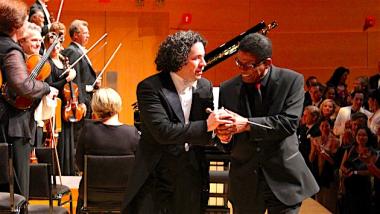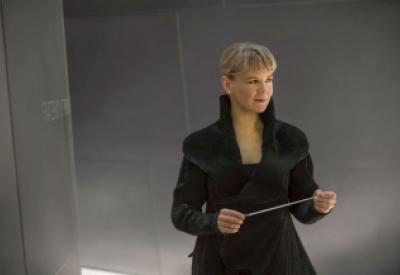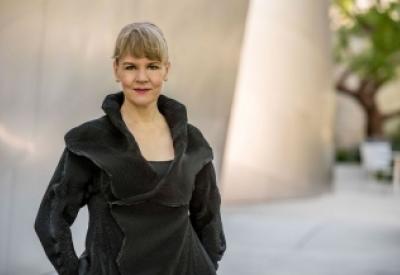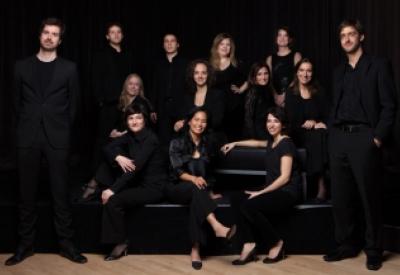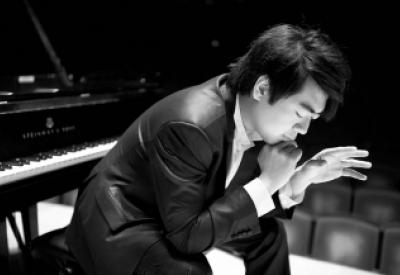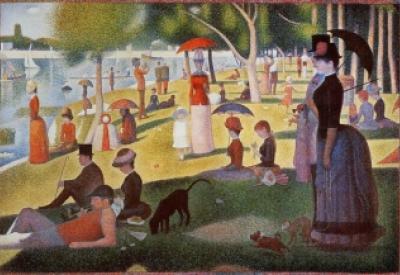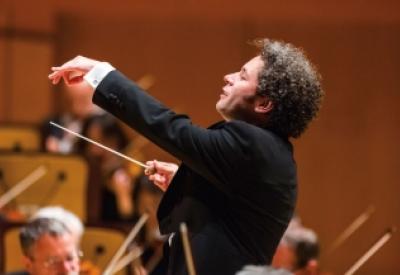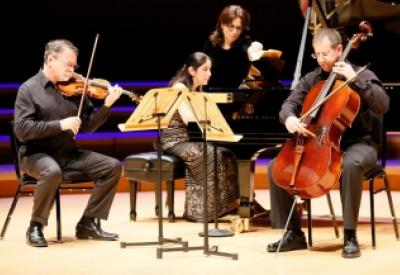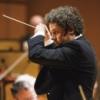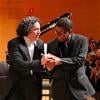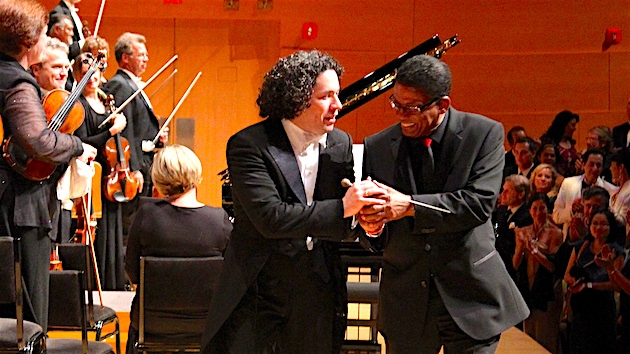
The Los Angeles Philharmonic, in another unprecedented, albeit brilliant, chunk of programming, is presenting a festival dubbed Power to the People! In truth, it could be called “Power to the LA Philharmonic,” as its wide-ranging appeal and sheer scope is, well, mind-blowing, with perhaps no other orchestra in the world offering a roster of talent on this scale. Co-curated by Music Director Gustavo Dudamel and Herbie Hancock, the orchestra’s creative chair for jazz, the festival runs March 5 through April 11 and features such boldfaced names as rocker Patti Smith, Dr. Angela Davis, filmmaker Spike Lee, composer Terence Blanchard, and Puerto Rican rapper Residente.
If the lineup seems eclectic, that’s the point. Indeed, this is a celebration of the humanitarian spirit, contextualized through the history of protest and solidarity, all seen — and heard — through the far-reaching lens of music. According to Meghan Martineau, vice president of artistic planning for the LA Phil, the genesis of such a festival seemed obvious.
“We, as a country,” she explained, “are living through deeply contentious and political times, and as an arts organization I find it’s a really important moment for the Phil to ask, ‘What role do we play, what role does music play in this moment?’ We turn to Gustavo Dudamel and Herbie Hancock — both of them are generous souls and such positive people — and they believe music is an incredibly important mode of expression.
“It’s important to create a platform for artists to share their opinions, their voices, and at the end of the day,” added Martineau, “it’s about music and its ability to inspire empathy, action, and solidarity, but really, the question being posed to us is, ‘How can artists use their creative voices for positive good at this moment?’ The feeling was,” she continued, “that we have this enormous platform of Walt Disney Concert Hall and we should open it up to the artists. Herbie and Gustavo have been thinking about who might be interested and who might have something to say [as] most artists think they are using their music to convey a message.”
Since music and protest have often gone hand in hand, whether as a slogan written on placards or chanted in the streets, it seemed only fitting, then, that the Phil would gather together an eclectic array of composers, musicians, and poets known for carrying the torch for a wide variety of communities. These are artists, in effect, who are helping us to understand one another while also fighting for the rights of all people to be treated as equals.
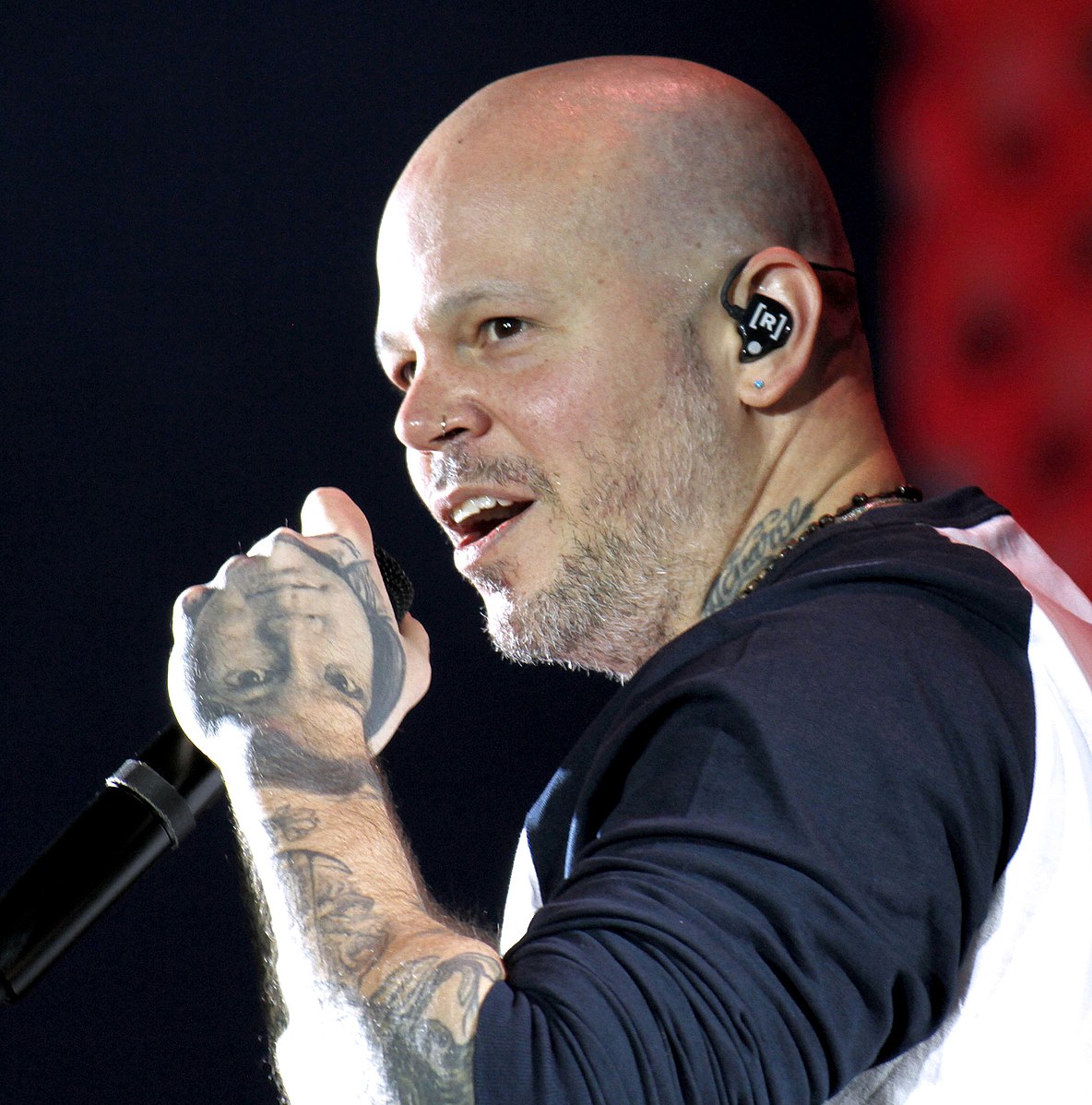
Where else in the world could audiences find an esteemed music conductor such as Gustavo Dudamel being paired with a Puerto Rican rapper? Born as René Pérez Joglar and winner of 25 Latin Grammy Awards, Residente is also a writer, producer, and co-founder of the alternative rap group Calle 13. He’ll be on stage at Disney Hall on March 7.
Replied Martineau: “Gustavo performed with Residente at the Latin Grammys and they got to know each other. He’s sort of political down to his bones and opinionated, and this felt like a natural fit for them. We do have to acknowledge,” she added, “that we cannot represent every viewpoint and story on the festival, but our hope was to present a wide range of ideas and artists to be borderless and that they were selected across genre, age, and era.”
Power to the People! also features talks, participatory events, and performance art at Disney Hall and at venues throughout Los Angeles and is being mounted in collaboration with the California African American Museum (CAAM), giving rise to the idea that the LA Phil’s progressive programming could be likened to something of a laboratory experiment.
“It’s not a lab, per se,” added Martineau, “but it is an opportunity to present not just traditional music but a mashup between Yolanda Adams and the LA Phil [March 8] all the way to a conversation with Terence Blanchard at the museum about his work [March 12]. We’ve been trying through all of our programs at the Phil to expand upon format, styles, and experiences, similar to what we did with the [recently presented] Weimar Festival.”
Martineau pointed out that everything the Phil does is an experiment and that “if it wasn’t, I don’t know that we’d be doing our jobs as curators and artists on stage. That’s what makes live performances so exciting.”
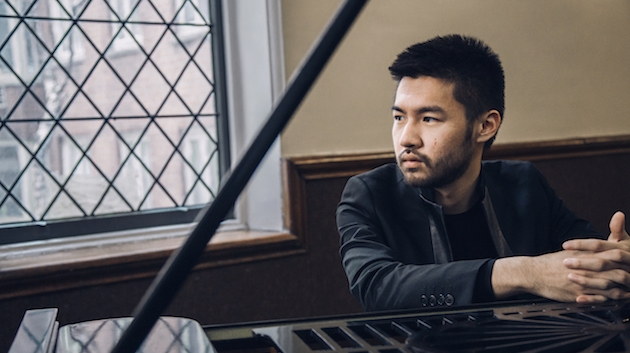
In addition to concerts by Smith and her band (March 6), pianist Conrad Tao performing Frederic Rzewski’s epic The People United Will Never Be Defeated! (March 10), and the movie music of Spike Lee and Terence Blanchard at Disney Hall (March 14), award-winning vocalist and composer Imani Uzuri will invite participants to sing songs of resistance at CAAM and in Disney’s BP Hall (March 7 and 8).
Uzuri’s ritual performance Wild Cotton was recently cited by The New York Times as one “with subtlety and vision.” Currently a Chamber Music America New Jazz Works commissionee, Uzuri is the founder and artistic director of Revolutionary Choir, intergenerational singing gatherings/salons that teach historical and new freedom/protest songs to communities around the globe. Needless to say, this is not your mother’s choir, although your mother could possibly be found singing in it.
Explained Uzuri, who was raised in North Carolina: “Everyone is welcome to join the choir and the goal is to have a global presence that continues to amplify the traditions of singing as a central motivating and healing tool of liberation work. We use our voices to heal, inspire, and uplift ourselves, and then we go out into the streets and share music with everyone.”
The good news is that no experience is necessary and, added Uzuri, “although sometimes folks come to the gatherings knowing no freedom/protest songs at all, they leave knowing many that they can sing as they join in marches, protests, vigils, etc. Many of the freedom songs I teach are from the Civil Rights era — songs often taken from African American spirituals, which are coded songs of sanctuary and rebellion communally created in secret gatherings by enslaved Black Americans in the Southern United States.”
Uzuri acknowledged that she’s been inspired by legendary artists, including Odetta, Dr. Bernice Johnson Reagon (an original member of The Freedom Singers and founder of Sweet Honey in the Rock), Nina Simone, Marian Anderson, Billie Holiday, and Mahalia Jackson, all of whom sang freedom songs/protest songs in various forms throughout their careers. “Great activist leaders like Fannie Lou Hamer and Ella Baker understood the power and the necessity of music within freedom movements, [and] with Revolutionary Choir I am continuing this legacy of being a freedom singer.”
Also contributing to this diverse tapestry is Tyree Boyd-Pates, humanities curator of the festival and native Angeleno who was raised in Section-8 housing and recently ended his three-year position as history curator at CAAM and is now associate curator of Western history at the Autry Museum of the American West. Boyd-Pates will be discussing hip-hop’s role in contemporary activism with Gaye Theresa Johnson, associate professor of African American Studies and Chicana and Chicano Studies at UCLA; cultural critic/activist Bakari Kitwana; and legendary rapper Rakim (March 11).
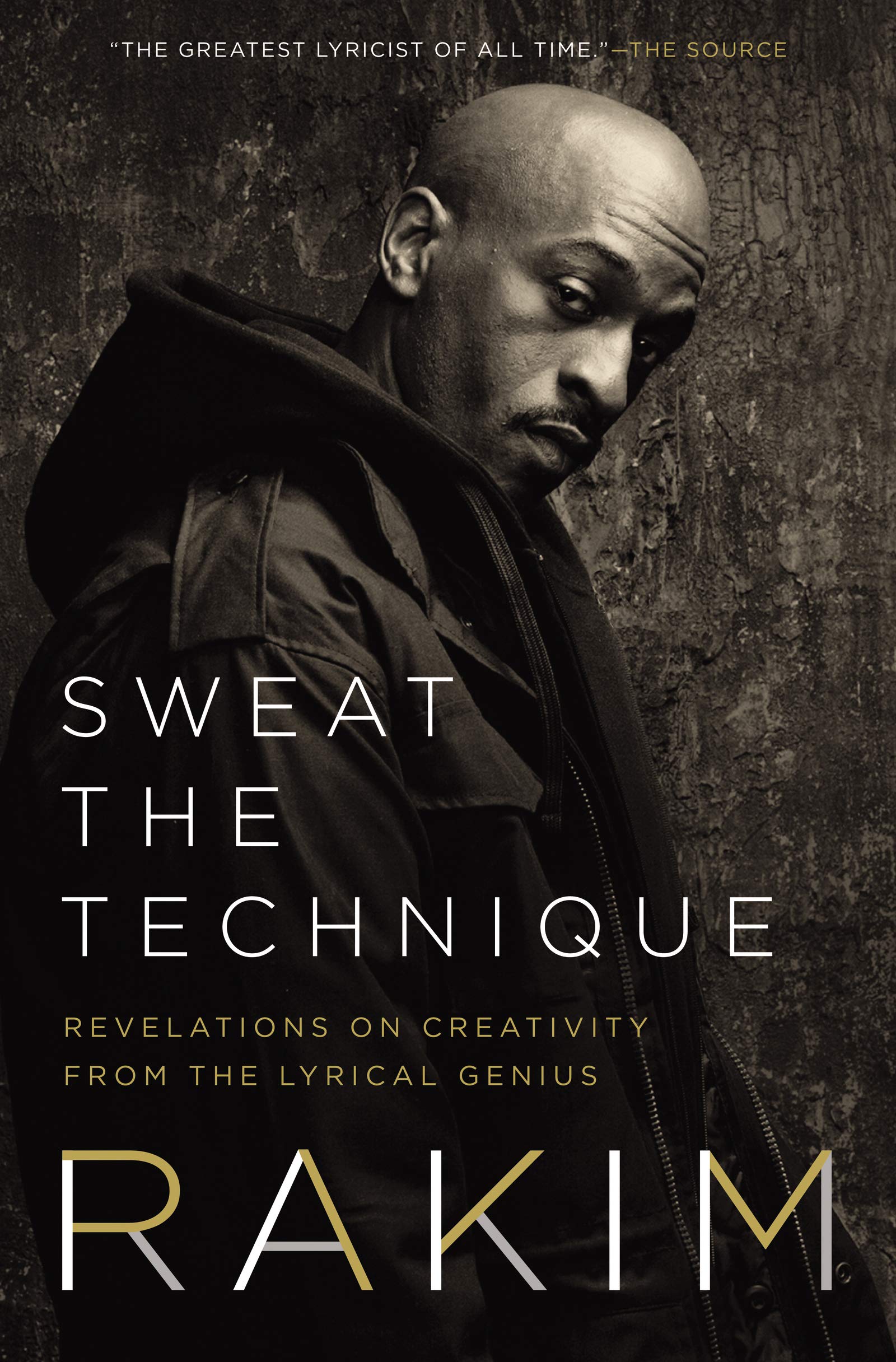
The program, “Sweat the Technique: The Politics and Poetics of Hip-Hop” (a riff on Rakim’s 2019 book Sweat the Technique: Revelations on Creativity From the Lyrical Genius), promises to be thought-provoking, much like Boyd-Pates himself, who believes that the festival’s participants are representative of the city of L.A., with inclusiveness front and center.
“I think that the Phil recognizes that there isn’t just one side of the coin,” he explained, “but there are multiple sides, that these genres and communities they represent speak to the diversity of approaches and entry points to how social justice and social justice themes can be reimagined to reflect the society that we all desire to be a part of and within.
“The festival,” added Boyd-Pates, who is also a writer and speaker, “builds on a rich legacy of political persistence within a community that has always sought to speak truth to power and bring equality and equity that matches the Constitution and [addresses the notion of] being human. As curator, my responsibility was to build relationships with notable speakers and musicians and have them convene at institutions who have the same thrust and mission, particularly where social justice and democracy converge.”
Boyd-Pates also pointed out that the various participants, from Residente and New York Times cultural critic Wesley Morris (March 10) to Dr. Angela Davis (March 18) are reflective of these communities. “They are thought leaders having pressing discussions, be it the ‘1619 Project’ [developed by The New York Times Magazine last year with the goal of reexamining the legacy of slavery in the United States and timed for the 400th anniversary of the arrival of the first Africans in Virginia] to the current state of Puerto Rico, it’s all very significant.”
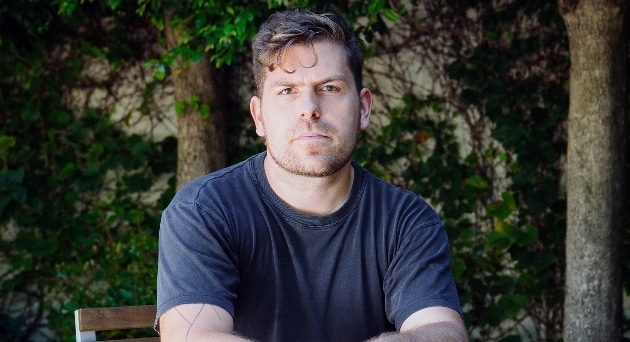
The astonishingly fertile lineup also includes Ted Hearne and the West Coast premiere of his new operatic opus Place (March 24) and Seth Parker Woods and Spencer Topel performing Iced Bodies, a work about the Black Lives Matter movement reimagined from an iconic performance art piece from the 1970s and executed on an ice cello, dyed black and embedded with electronics (March 21). By all accounts, Power to the People! seems to have left no stone for a musical tradition or social movement unturned.
As Martineau summed up the festival: “Gustavo feels very strongly about this — that audiences will discover and like these experiences [and] people from all different genres of music are much more open to this idea of collaboration. Our world has changed. There are so many more opportunities to get to know music that you may not have been exposed to before. It’s so easy to hop online, go to Spotify, and get familiar with the artists, but what I love about Gustavo — and Herbie Hancock, too — is his deep, deep appreciation for music, regardless of genre.
“For him, it’s about great artistry and powerful music. He’s telling me all the time about artists in different genres that are amazing, [so] his vision is very much in this festival — not just to celebrate classical music but all idioms and ideas.”
With the notion of art imitating life — in this case, our multicultural society — the Los Angeles Philharmonic is putting music where it matters, in the concert hall and at significant venues around town. And by taking a stand in saying yes to more engagements with non-traditional artists, the Phil deserves our attention and respect. For that we salute them, be it with raised fists or rousing applause, elevating — and educating — many of us in the process.

